Imagine using a compass that never points north or a map that rewrites itself as you travel. These aren’t challenges in a new video game. This is the reality that leaders face in today’s workplace as they navigate new and varied challenges amidst growing uncertainty.
The leadership landscape has been rapidly changing, including how leaders work and tools they can rely on. Accelerated by advances in technology and AI, workplace changes are prompting HR professionals to confront new leadership development challenges to prepare leaders for what’s ahead.
Based on responses from nearly 14,000 leaders from more than 1,500 organizations, DDI’s Global Leadership Forecast 2023 found five top leadership development challenges that HR teams face today:

1. Making Learning Relevant
Our research shows that learning must be relevant to get results. Otherwise, development doesn't stick. Leaders need to be able to connect what they learn to real challenges they face on the job.
Relevance has become even more important as leaders are overwhelmed with work duties and have less time for learning. With so much competing for their time and attention, they are more likely to take advantage of professional development opportunities when they can see direct improvements in their job.
Companies can reinforce relevancy by communicating how valuable development is for career growth. Furthermore, senior leaders should show they value development and that it's a critical part of the business strategy.

2. Creating Personalized Experiences
Learning should use data and insight to create personalized experiences for each leader. Leadership development is not one-size-fits-all. In our Global Leadership Forecast 2023, leaders made it clear that they want more insight into the areas they can perform better.
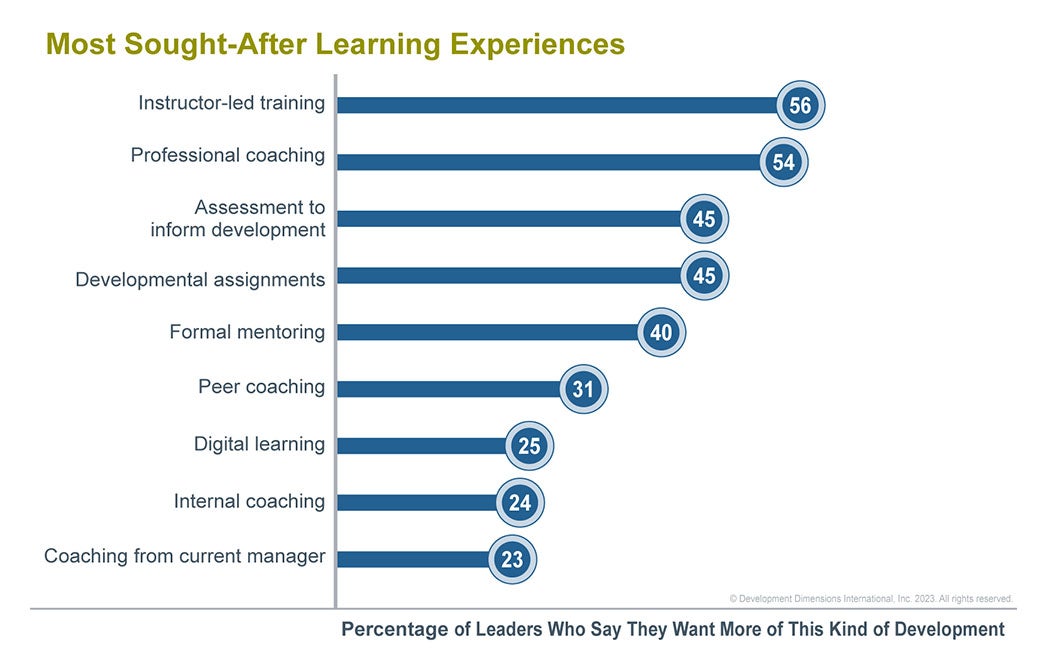
Leaders said that using assessment to inform development is one of the top three ways they want to learn. Further, when we conducted a follow-up survey with 1,149 leaders, 87% said they want more insight into their growth areas. That means learning must be personal to them and their development needs.
Many organizations are working to improve personalization of their programs. Fueling leadership development programs up front with assessment insights is becoming table stakes. According to our research, 64% of HR respondents say their leadership development programs begin with a diagnosis of leaders’ strengths and weaknesses.
Fueling development with insights increases the relevancy of what leaders learn. Personalization also increases leaders’ awareness of where they can get the most value from development. When learning is personalized for leaders, any effort they put in will be more valuable than going through generic development in areas that aren't relevant to them.

3. Prioritizing Immersive Learning
When leaders rank what they want most in development, two criteria top the list: learning that is immersive and learning that enables them to interact with peers. The majority of leaders (61%) say they want to be immersed in learning with others. In your organization, this could include forming peer learning groups where leaders can share experiences and discuss learning.
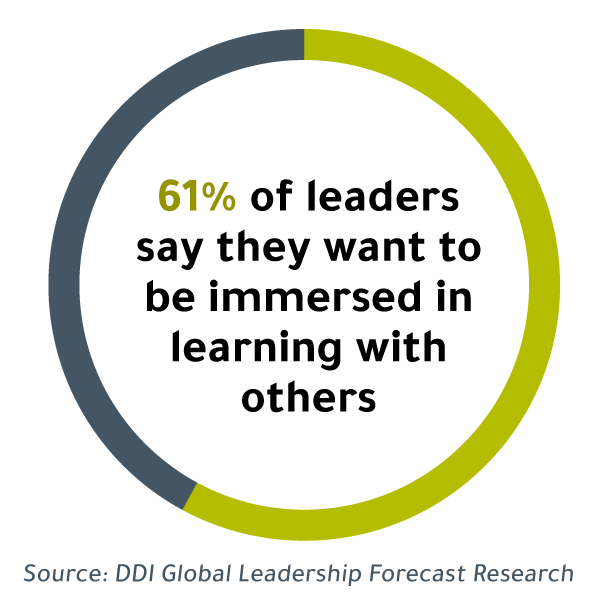
In addition to peer interactions, what does it mean to prioritize immersive learning? Immersing leaders in their development means learning by doing. Give leaders the opportunity to work through situations and challenges inspired by a real workday. Offer them the chance to participate in simulations, which can provide leaders with opportunities to practice and demonstrate skills in a realistic scenario, without the risk of making a mistake with real consequences.
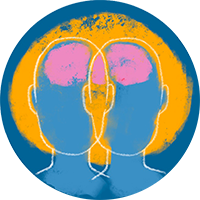
4. Reinforcing Empathy
With so many people facing increasing pressures at work, empathy is a more important skill for leaders to develop than ever.
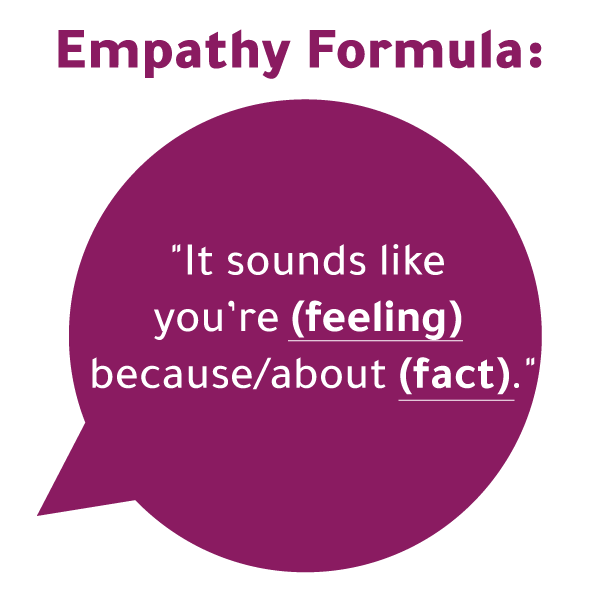
Leaders who listen and respond with empathy are better able to connect with their employees and make them feel understood. Our ongoing global research shows that empathetic leaders are also far more likely to have engaged teams and retain talent.

5. Reducing Burnout
Given the competing demands for leaders’ time, it’s important to offer high-quality and flexible learning opportunities that provide support while meeting their development needs.
The majority of leaders (70%) acknowledged they often feel used up at the end of the day. Leadership training that is not relevant, personalized, immersive, and human-centered risks falling very low on a leader’s list of priorities. It’s critical that development provides clear value and job application so leaders want to prioritize it. On top of this, only 15% of leaders feel very prepared to prevent employee burnout.
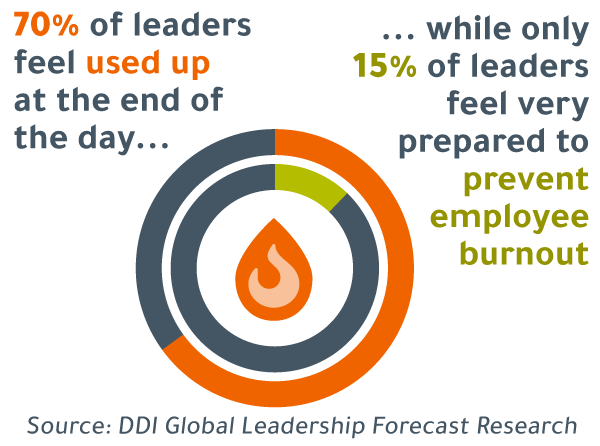
To prevent burnout on their teams, leaders need help upskilling and practicing key interpersonal behaviors during interactions. These behaviors include:
- Listening and responding with empathy.
- Genuinely acknowledging their own failures.
- Showing vulnerability.
- Inquiring about wellbeing.
Showing these key behaviors also works to build trusting work relationships. And when team members trust their leaders, they are less likely to experience burnout.
Addressing the Top Leadership Development Challenges
The world is changing incredibly fast and leaders need support to keep up. Your best chance of success is to equip people with the leadership skills to handle the tough changes.
This list is just a start. You don’t have to do everything at once. Companies that address even a few of these top leadership development challenges put themselves in a better position to succeed.
Stephanie Neal is director of the Center for Analytics and Behavioral Research (CABER). She leads market and trend research focused on leadership and business innovation and is the general manager and lead author of DDI's Global Leadership Forecast.
Topics covered in this blog

